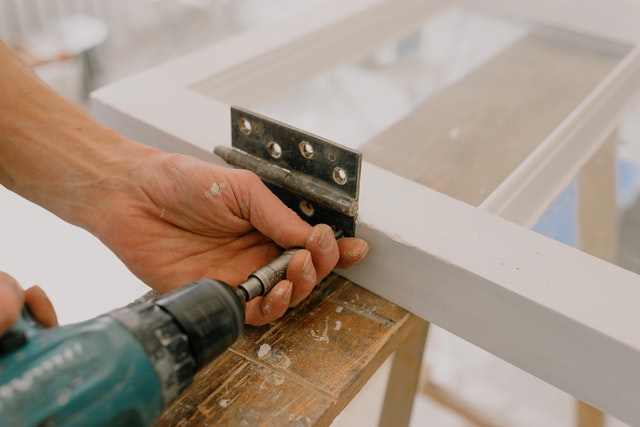
Have you ever installed a hinge, only for it to start squeaking shortly thereafter? Hinges are mechanical bearings. While available in different styles, they all move during use. Opening or closing a door with which a hinge is used may result in the hinge squeaking. By understanding why hinges squeak, however, can eliminate this unwanted noise.
The Pin Is Too Big
Hinges may squeak if their respective pin is too big. Most hinges consist of two leafs and a pin. The pin holes the two leafs together while simultaneously forming a knuckle. If the pin is too big, the hinge may squeak. The pin will rub against the hinge’s leafs within the knuckle, resulting in friction. This friction can manifest in the form of squeaking. You can prevent this from happening by choosing a hinge with the right pin size.
The Pin Is Damaged
Hinges that have a damaged pin may squeak as well. If the pin is bent, for instance, the hinge may squeak. Under normal circumstances, pins shouldn’t bend. Pins will remain unright inside of the knuckle. If you remove the pin, though, you may end up bending it. And bending the pin just slightly can cause the hinge to squeak. The bent pin will rub against the hinge’s leafs, in which case you may hear the hinge squeaking.
There’s Dirt or Debris Inside of the Knuckle
Another common reason hinges squak is dirt or debris inside of the knuckle. The knuckle of a hinge is simply the hollow tube that’s automatically formed when the hinge’s two leafs are pressed together. It’s designed to support the pin. Placing a pin through the knuckle will then hold the two leafs together.
Hinge knuckles aren’t immune to dirt and debris. As small pieces of dirt and debris make their way into the knuckle, they will restrict the hinge’s movement. You may still be able to open and close the hinge, but doing so may result in a squeaking noise. For a quieter operation, you’ll need to clean the hinge’s knuckle by removing the built-up dirt and debris.
Little or No Lubrication
Hinges that contain little or no lubrication are susceptible to squeaking. Lubrication will reduce friction. When properly lubricated, the hinge’s pin and leafs will be able to move more smoothly And with less friction, the hinge shouldn’t squeak. If you’re dealing with a squeaky hinge, try adding a small amount lubricant directly to the hinge’s knuckle.
